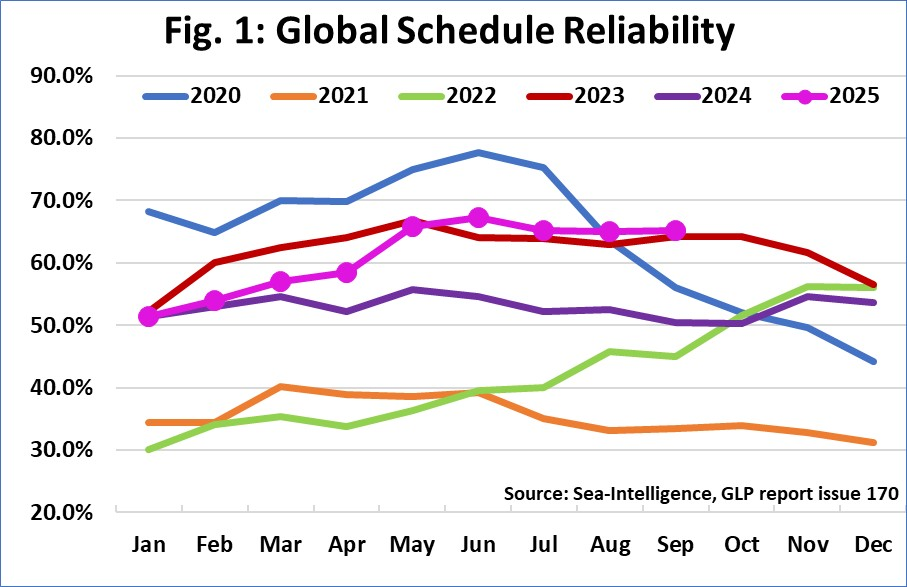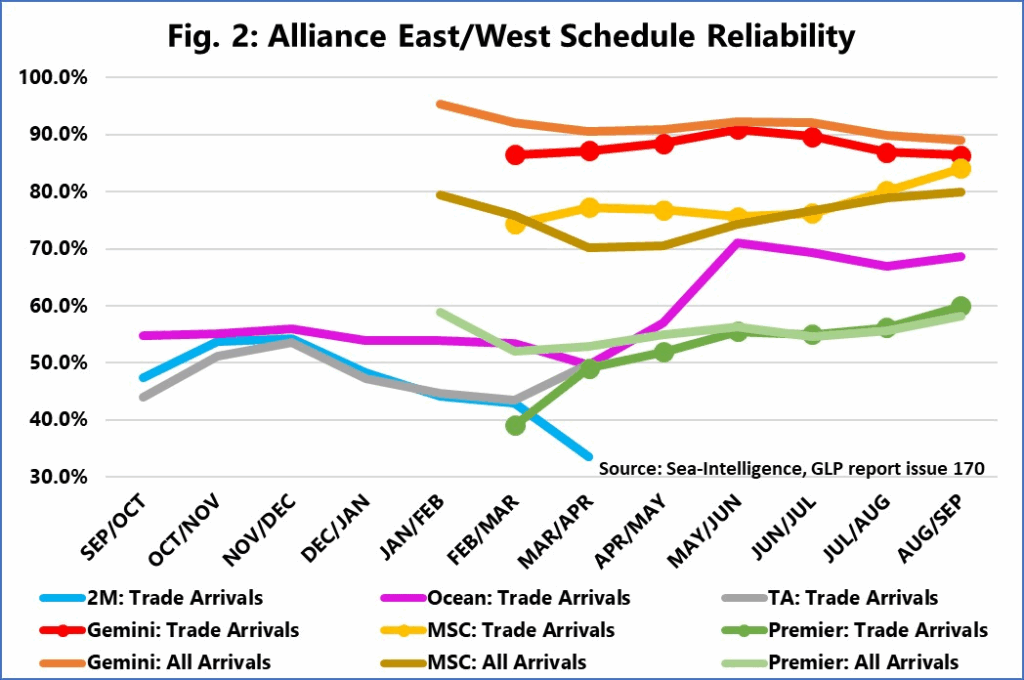Denmark-based research and analysis specialist Sea‑Intelligence reported that global industry schedule reliability recorded in September a marginal M/M improvement of 0.1 percentage points to 65.2%, the second-highest figure for the month (across 2019-2025).
Sea-Intelligence released its 170 issue of the Global Liner Performance (GLP) report, with schedule reliability figures up to and including September 2025.
On a Y/Y level, schedule reliability in September 2025 was up 14.7 percentage points. The average delay for late vessel arrivals was unchanged M/M at 4.88 days.

Maersk has climbed in the first place as the most reliable top-13 carrier in the report with schedule reliability of 77.0%, followed by Hapag-Lloyd with 73.6%. There were five carriers each in the 60-70% and 50-60% range.
Traditionally, alliance scores are based on just the arrivals in destination regions, but as that metric was not available for the new alliances in February, Sea‑Intelligence introduced a new measure, based on all arrivals, including the origin region calls on the East/West trades.

Sea‑Intelligence continues to present both measures, “All arrivals” which is comparable to the February measure, and “Trade arrivals,” which is comparable to the “old” alliances.
When the new alliances are fully rolled out, these two measures will converge.
According to the report, in August/September 2025, Gemini Cooperation recorded 89.1% schedule reliability across ALL arrivals, and 86.4% across TRADE arrivals, followed by MSC at 79.9% for ALL arrivals and 84.1% for TRADE arrivals, while Premier Alliance recorded 58.2% for ALL arrivals and 59.9% across TRADE Arrivals. For the “old” alliances, “ALL arrivals” are equal to “TRADE arrivals,” and Ocean Alliance scored 68.6%.
The full report can be found here.



